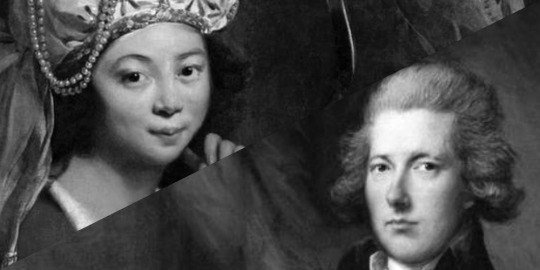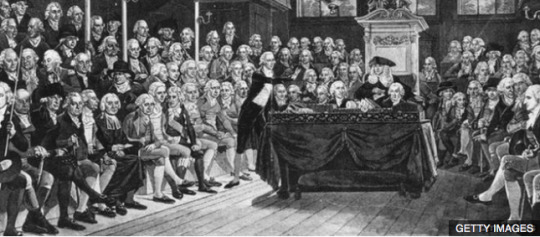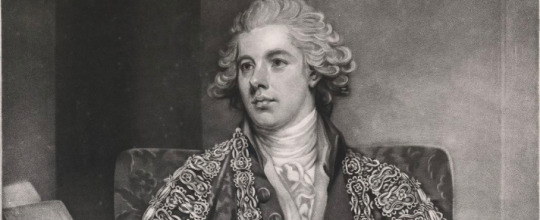Text
let’s talk about the novel

I keep vaguely mentioning the novel as if I didn’t create this blog because of it. It’s time to talk about Ever Yours.
「Meet the Characters」
To those around her, Devi Viridian is living the perfect life: she’s ambitious, talented, and successful. She’s also the best liar in the world. And everyday, Devi lives as though she is running out of time – soon, that pristine mask will slip and reveal the ugly truths she’s spent her life running away from.
After the funeral of her beloved mentor and friend, Devi is thrown back in time by an unexplainable freak accident. Waking up, she finds herself in an unfamiliar world, far away from home. Will she be able to find her way back – or rather, does she want to find her way back?
----- ----- -----
At the tender age of 23, William Pitt has fulfilled his destiny: to follow the footsteps of his father and become one of the most powerful man in country. Aloof, ingenious, and unstoppable – the whole world sees nothing past the facade which he has spent his entire life building up. Just as it should be.
Fast forward four years: Christmas recess, 1787. It was supposed to be just another tedious journey back to London – until he finds a young woman lying unconscious on the road. Nothing could have prepared him for what was next, and how their lives will forever be changed.
A young woman from the 21st century. An 18th century Prime Minister. A whole lot of chaos (and Whitney Houston). This isn’t your typical history flick.
(I plan to write a proper blurb at some point, but we’ll see).

(Top left: Robert Home, Portrait of a Malay Woman, c.1770-1778; Bottom Right: Gainsborough Dupont and Thomas Gainsborough, The Right Honourable William Pitt the Younger (1759-1806), c.1787-1790. )
One of the greatest challenges is deciding to have a main character who’s a WOC, and fitting her into a historical setting that was extremely hostile towards POC. But in truth, I didn’t think twice about it because as a WOC myself, I’ve been waiting all my life to see somebody who looks like me in historical fiction. When southeast Asian women are shown in the media (generally speaking), we’re usually portrayed as degrading stereotypes and caricatures, which (it goes without saying) are not representative of who we are. I hope my novel will make things right – you know what they say, ‘be the change you wish to see’.
Also, In light of everything that’s going on today, I think it’s important to go beyond the white-washed history of our textbooks. The historical domain characters (bar a few), are all elite white men and women, which is unavoidable. But in my process of creating the rest of the novel’s cast, I’ve been able to explore the lives of those who didn’t fit into that description, and it has greatly enriched my understanding of the 18th century and deepened my love for one of most vibrant periods in British history.
Again, this point deserves its own post, which I can’t wait to write some day!
「So, how’s it actually going?」
Ah, the hard part.
In my return post, I already mentioned some adjustments I made during my hiatus, viz. the new title and the re-write. The new title is pretty straightforward, as I’ve explained, the re-writing less so.
To start with, let’s talk structure. The novel is split into two parts: Part I covers January-August 1788 (+ December 2017, pre-time travel chapters), and Part II from August 1788 to April 1789 (+an epilogue set a few months after). Each part contains ~40 lengthy (1k words+) chapters give or take, and the story is told chronologically, with the exception of some flashbacks. So yes, I have my work cut out for me.
I decided that it was worth investing in a proper word-processor, so I bit the bullet and bought Scrivener*. Since I’m going into my third year, I’m sure I’ll make extensive use of it for my dissertation so that the slightly hefty price tag is justified. Google Docs, you have been a worthy companion, but my computer does not thank me for having 25 tabs running simultaneously, and I the last thing I need is organisational inefficiency.
(*this post is strictly NOT sponsored by Scrivener or anybody related to it but hey feel free to hit me up if you’re reading this, Literature&Latte).
I hope to make some progress throughout the year, but it’s definitely going to be challenging. Research is unbelievably intensive, and I’m not willing to compromise (too much) on authenticity. So far I’ve read secondary materials on topics ranging from Georgian kitchens to the printing business to POC in the 18th century. And that’s not counting primary sources like letters and newspapers! Again, this research is something that I hope to share with you all as I go along – I’ve already researched many things so actually, I have quite a massive backlog I could work with.
「The Playlist 」
Before I go, I’d like to leave you, dear reader, with a very crucial element of the novel:
Throughout the story, these songs are either directly mentioned, or snuck in as cheeky lyrical references in the narration. I don’t want to give away too much away just yet, but you have to trust me when I say that this is an important part of Devi’s character, and by extension, the entire novel.
This 80s heavy playlist is inspired by the hours I spend listening to Smooth radio, which is always on blast in our living room (cheers, mum). Generally, I’d say that the music of our parents’ generation are enjoying a sort of Renaissance because streaming apps has increased accessibility to these oldies but goodies – and of course, it may as well be that we inherited the taste for it from the adults around us.
Also, 1780s vs 1980s, duh. *galaxy brain*
Well. I think I’ve done enough rambling for now – see you next post!
- nsj
3 notes
·
View notes
Text
update: I’m still alive and ‘ever yours’

「Huh, you’re still alive?」
Apparently so. Let’s just say this – second year was a wild ride. The first half of it things just ‘got too real’, and the second half of it nothing felt real. In between them were some transformative personal experiences for me on top of the university workload which as usual, was brutal.
The first semester, I found myself working on two essays simultaneously, back to back, like a clockwork just to keep up. It was tough, and I just have to record somewhere in writing – I’m quite proud of myself for pulling through in spite of many things. December 2019 will go down as one of those ‘rock bottom’ moments but it was one that I’m glad I experienced – I came out of it much stronger than I was before.
And then, second semester was... a mess. The first five weeks was alright, and then by late February the universe just threw the kitchen sink in: strikes, coronavirus, deadlines. Suddenly it was all chaos – 0 to 100 real quick sort of situation. Funny enough, that moment came mid-March, right around my birthday – not exactly how I envisioned how my official entry into adulthood(tm) would look like.
So, it’s only right that I return to the very thing I’ve been desperate to get back to. Am I making excuses for not working on the novel? Possibly. But I also realised that taking time for myself was important. I did beat myself up a lot for struggling, which I shouldn’t have, because all it did was make me feel even worse.
In spite of it all, I’m happy to say that I’ll be entering third year with another solid first! The next year is looking challenging for sure, and essentially we’ve turned into a massive online school (yikes). And of course, that 10k words dissertation is just around the corner...
But enough of uni for now – onto the novel!
「'Ever Yours’?」
I did mention a change in working title from ‘A Certain Task’ to ‘Ever Yours’. But why? Because it’s more relevant, that’s why.
After spending some time cooped up in the archives last summer and reading through many, many old letters (and failing to understand most of them because I’m rubbish at palaeography), there’s one thing I’ve noticed: everybody had a unique way of signing off letters. I think that that’s pretty cool, and we should 100% bring it back. (I’m guilty of using the pretty safe but flavourless ‘kind regards’ to sign off my emails, but that’s beside the point).
What I particularly love is that nearly all the sign-offs express sentiments along the line of ‘affection’ and ‘duty’. For William Pitt, it was was ‘Ever Yours,’ (sometimes with ‘Affectionately’ in between, but most of the time he didn’t even bother to write those two words properly, to begin with). Here’s an example:

[Image: William Pitt to William Wyndham Grenville (April 1789), Add Ms 71587 f.33, The British Library, London, accessed 29 June 2019]
A bit squiggly, but you get the idea. For me, it made sense to switch up the title, but the decision wasn’t immediate because I thought “well, this sounds a bit too romance novel-y*, doesn’t it?” but after surveying some of my readers, they didn’t seem to think so. So there’s that. A decision was made.
(*I’m not saying there’s no romance in the novel – but this isn’t a romance novel per se so I’m trying to avoid false advertisement).
「Reworking」
Another fairly difficult decision, but for the best. When I started writing Ever Yours, it was written in first person present-tense. LITERALLY THE OPPOSITE OF HOW I’VE BEEN WRITING MY WHOLE LIFE. HELLO. I think I was trying to do something different, but I felt like that was a mistake.
Transforming the novel into a different perspective/tense has been a challenge of its own (given that I’ve already written about 20k words in the previous style), but it also gave me an opportunity to tidy a few things up as well so I’ll consider it a win.
「Final Thoughts」
A note from myself, to myself: don’t stop working on this. By ‘this’ I mean the blog, the novel, anything related to it. I have a bad habit of not seeing things through or never finishing anything, which is why I keep disappearing for aaaages, but I know that I can’t be like this forever if I want to get things done. So I’m back – remind me to get my butt back onto this blog if I disappear!
And to the people who reading this: I hope to be sharing some of thing things I’ve been working on soon! Maybe some excerpts and tidbits from/about the novel, or some good research stuff I’ve been keeping in my notes! I have a couple of things in mind, even a post drafted so look out for them!
Farewell, for now :)
0 notes
Text
Well, hello there!

My name is Natty, and this is my research/writing progress blog!
I am an undergrad history student based in London, and when I’m not sobbing over multiple crippling deadlines I work on my novel which has evolved into my part-time job. I also have other hobbies, which I might talk about sometimes, but this blog is mostly for sharing my personal research works for my novel.
First posts have always been the hardest part of starting a blog because you know, first impressions and all. Although the most comforting bit is that eventually this thing will get buried under many, many other posts to come.
Now is a good time to mention what you can expect to find around here:
「Historical Research」

Disclaimer: I am not a historian. Now you’re like, “but you’re a history student?” Yes, but that’s like saying a first-year med student should know how to do a heart transplant. I’d consider myself more of an amateur/hobby historian, training to be a proper one via degree (/cries in £27000 worth of debt, possibly more). So there’s that. I’m trying to keep this blog casual and fun, because a history degree is stressful enough already.
My personal interest is anything late 18th-century England/Britain (aka The “Georgian Era”). Now, it wasn’t the best time ever but there’s something about those Georgians and their wild antics that makes you unexpectedly fall in love with their world. When you’re in London, you can find traces of the Georgian past in the landscape, architecture, in galleries – everywhere.
Sadly, since time frame I’ve picked is so arbitrary (say 1780s-1800) and is the cusp of the Early Modern and Modern period, most historians forget about it. In fact, it seems like my university neglected the entirety of the 18th century in general but that won’t stop me from reading about it in my free time.
「William Pitt the Younger?」

(Image: John Jones, William Pitt the Younger, M.P., (1759-1806), Chancellor of the Exchequer, later British Prime Minister, 1789)
Talking about falling in love when you don’t expect (wait what), let’s talk about William Pitt the Younger. It’s safe to say that he’s wholly responsible for my interest in the 18th-century. I knew it from the moment I saw the Hoppner painting on his Wikipedia article that I will stan him forever.
But why a dead Prime Minister from 200-ish years ago? To be honest, I don’t know. Although, there’s something admirable about a man who became PM at 23 (you’ve read that right) and stayed in power for 19 years, dedicating his entire life to running the country. In public, he was a revered/feared/loathed politician but in private he was a young-at-heart optimist who loved gardening and the classics. We probably will never see a politician as accomplished, intelligent, and dedicated as Mr Pitt in our lifetime – and that’s the tea.
I guess from this level of gushing you should expect to see a lot of him on this blog. Although I specifically didn’t make this a Pitt the Younger fan blog for a reason.
Last but not least...
「My Novel – A Certain Task」
A wannabe historian writing a historical novel – I’m sorry if that’s predictable, but I hope my novel isn’t!
A Certain Task is certainly a task (I’ll see myself out) and is probably why I’ve started this blog in the first place. I’ve tried writing some historical novels in the past (pun not intended) and did bits of research for them but oh boy, it was like a child’s play compared to what I got myself into this time around.
I think the novel deserves its own post, but here’s a teaser: time-travel, 1780s politics (see: above section), with a 1980s inspired soundtrack.
In Conclusion?
I am a history student and aspiring writer who fancies a dead white guy – so basically, 50% of Tumblr (jk).
See you next post!
#tattle#personal#first post#history#historian#historical research#georgian era#18th century#regency#british history#writers on tumblr#writeblr#historical fiction
1 note
·
View note
